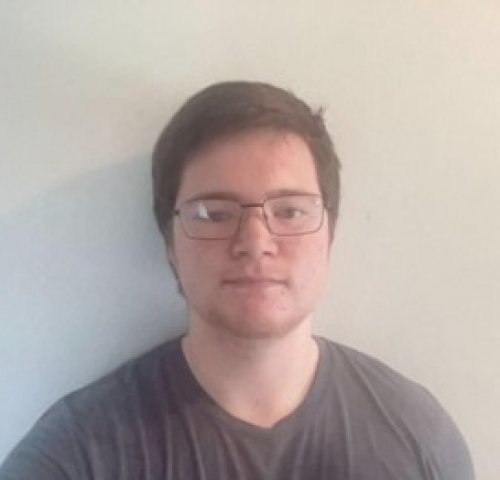
Joshua Johansson
University of Wollongong
I am an honours mathematics student at the University of Wollongong (UOW). I just completed my Bachelor of Mathematics (Advanced) at UOW in 2023 in which I majored in pure mathematics. I chose to study mathematics at university after I developed a passion for the subject in school.
I love maths for its beauty, objectivity and the satisfaction it provides through solving challenging problems
1. Can you give me a quick rundown about the type of mathematics you are studying and its potential impacts for the broader community (think how you would explain your work and studies to others who don’t study maths)
I am primarily interested in pure mathematics. Namely, mathematics without any application to the real, physical world in mind. However, sometimes ideas in pure mathematics eventually find real-world applications, such as number theory in cryptography and Riemannian geometry in general relativity. It would be great if applications like these were discovered for the mathematics I study, but that doesn’t interest me as much as just the beauty of maths and solving fascinating problems.
For my honours thesis, the tentative topic is the Bost-Connes system which is a C*-dynamical system that relates to the Riemann Zeta function, an extremely important object in number theory (i.e., the study of the integers).
This topic would combine my interest in number theory (which has developed at Summer School) and my supervisor’s expertise in C*-algebras and KMS states. This topic is actually somewhat applied in that C*-algebras are used in quantum mechanics to model observables (i.e, physical quantities that can be measured, such as position and momentum).
2. How did you get into mathematics/statistics/data science? Was there someone or something that inspired you to this field?
Mathematics has been my favourite subject since I was about 11 years old. In year 6, I had an excellent teacher that encouraged me a lot. For instance, I recall him giving me a book filled with interesting mathematical puzzles. I definitely enjoyed maths prior but my appreciation for maths considerably deepened that year.
In high school, I had another excellent teacher who taught me from year 8 up to year 12. In year 11 or 12, I started teaching myself some university-level mathematics (e.g. multivariable calculus, linear algebra, real analysis). At that point, I was sure I wanted to study mathematics at university.
3. You received a Travel Grant to attend AMSI Summer School 2024. How important was this in terms of your ability to attend, fully participate in the program and meet others studying in similar fields? Do you think it was an advantage to attend the program in-person?
The Travel Grant was very important for my attendance; without it, I would have attended only online. It was certainly an advantage to attend the summer school in-person. If I did not attend in-person, I likely would not have made the friends that I did. Also, I find one of the best ways to understand mathematics is to discuss it with others. Often if I get stuck on a problem, just explaining what I have done and where I am stuck to someone else can get me unstuck or even help me solve the problem entirely.
4. What was the most valuable part of the program for you?
Interacting with other students in lectures, workshops, while studying together or just hanging out. It was great meeting so many like-minded people and it has given me extra motivation to work hard this year.
5. In the long-term, what do you think are the benefits of having attended Summer School?
Other than the knowledge and skills gained from the actual courses, I think the main long-term benefit of Summer School is building connections with others who may be future colleagues or even collaborators.
6. Summer School included a special Careers Day program which aims to help give students an idea of the kinds of career paths available to maths graduates in industry and private sector research areas. Do you feel better equipped to explore career options in the mathematical sciences after attending AMSI Summer School?
Yes. Even though I plan on working in academia, it is certainly helpful to know of other career options if things do not go according to plan.
7. What advice would you give to someone who is considering applying for Summer School in 2025? Should they apply and why?
I would definitely encourage other mathematics students to attend Summer School in 2025 (especially in-person). It is an excellent opportunity to learn interesting maths and meet interesting people.
8. What are your current career ambitions in the mathematical sciences sector?
At this stage, I plan on starting my PhD next year but I am unsure at which university. If I enjoy my honours project a lot, I will likely stay at UOW. If I don’t, I may move to a different university for my PhD. And if my PhD goes well, I will continue doing research in that area.
9. How did connecting with the community at AMSI Summer School support your experience?
Connecting with the community at Summer School supported my experience tremendously. Learning and doing mathematics is especially enjoyable when done with others as people share similar struggles and the satisfaction of overcoming them. If one has trouble understanding a concept or is stuck on a problem, they can ask someone else to help who will often give a much more intuitive explanation than if one just read lecture notes for instance. Also, explaining a concept or how to solve a problem to someone else can deepen one’s own understanding. It was also great to just hang out with friends when we weren’t studying mathematics.
10. Any other feedback/comments you would like to provide on the AMSI Travel Grant or AMSI Summer School 2024?
I am very grateful for the opportunity to attend the AMSI Summer School 2024 and would highly recommend others to attend in the future.
